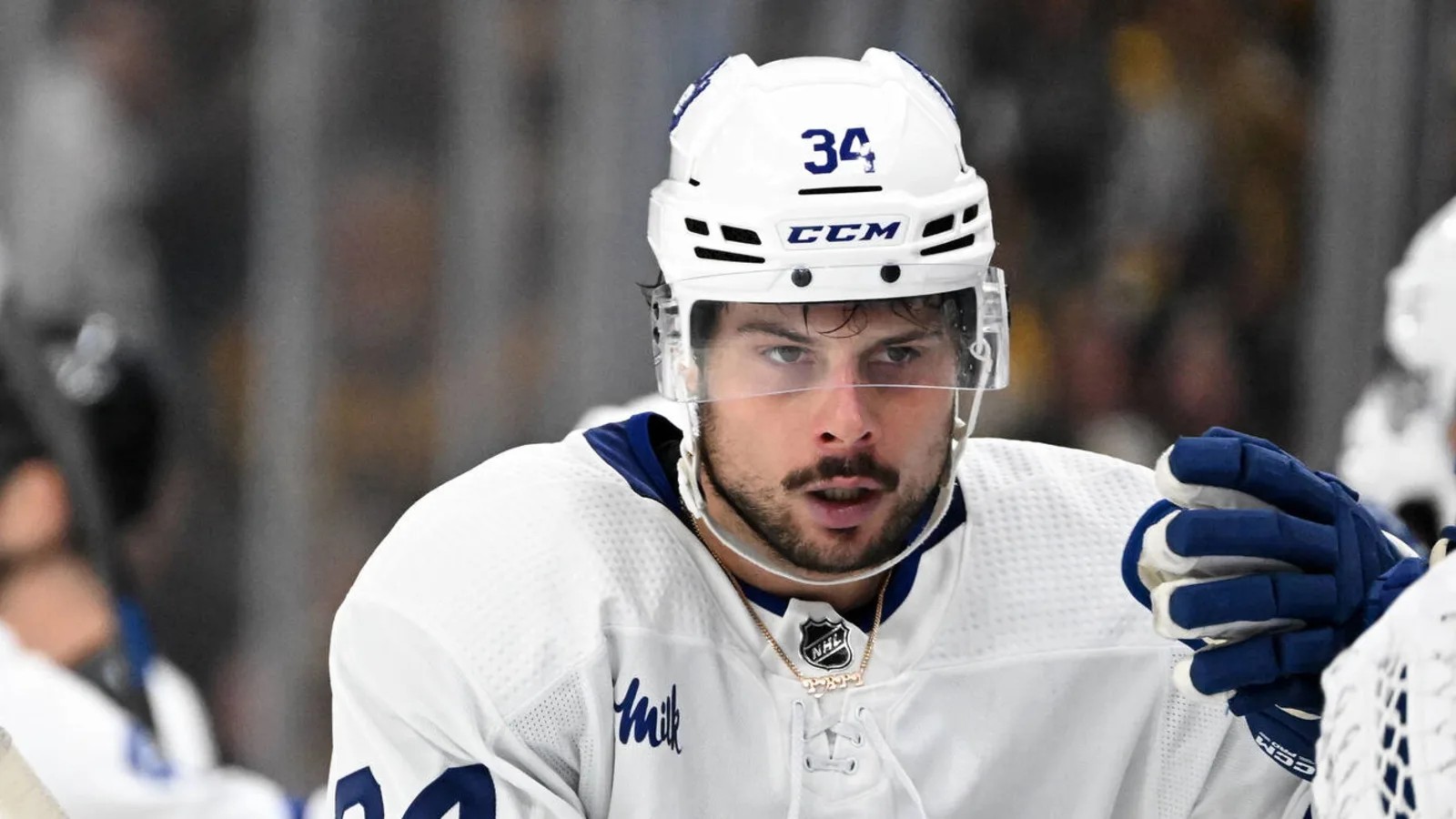How’s this for some dog-days-of-the-offseason news content: The Toronto Maple Leafs will be naming Auston Matthews the 26th captain in franchise history this week.
TSN’s Darren Dreger first reported the news, which will be formally announced at a press conference at 11 a.m. on Wednesday. Dreger noted, “John Tavares fully supports the change. Tavares has been heavily involved in the process with GM Brad Treliving.”
This is to be expected. It is unlikely the Leafs, Brad Treliving, or new head coach Craig Berube would antagonize Tavares and the team for the sake of change. Everyone has to be on board for this to make sense. While this move will be painted as embarrassing a respected veteran in some corners, if Tavares is truly fine with it—and the indications are that he is—there is no embarrassment, making this angle a nonstory.
For Matthews, it further cements his status as the face of the franchise.
Now was the time
Switching the captaincy to Matthews is something I advocated for earlier in the offseason:
I generally believe that the captaincy and the designated letter wearers are overhyped debates, but I really believe it’s time to make Auston Matthews captain. John Tavares is in the final year of his contract, and his play is declining. When he was first named captain, I appreciated the steady, if boring, voice answering the questions in the media at a time when the team was largely young and maturing. However, at this point, Matthews is clearly the leader of the group. He drives the bus and leads the group on the ice. This is his team.
Part of the responsibility should be the captaincy and answering publicly for the group, for better or worse. It is part of being “the man.” Matthews is not a kid anymore; he’s turning 27 this September and is more than capable of handling the responsibility. I also think it’s symbolically significant in terms of turning the page on this iteration of the Leafs.
I still think all of the above is true.
Changing captains is not a magical cure-all, but the Leafs have to take steps to move on from this era and launch a new one that strives for greater. It would’ve been the easy, most frictionless move to wait until Tavares’ contract was over, but the team really needs to start taking seriously the prospect of demanding more and better of itself wherever it can in the here and now.
The San Jose Sharks stripped Joe Thornton of the captaincy (who stripped it from Patrick Marleau before) in favour of Joe Pavelski and made the Stanley Cup Finals the very next year after a string of disappointments. I won’t argue it was specifically the result of the captain change by any stretch, but sometimes, the symbolism of moving forward can help turn the page for a franchise.
You can only build by placing one brick at a time. Sticking with a captain who has been generally uninspiring as a leader, simply for the sake of doing so, as the team routinely comes out unprepared and incapable in the playoffs didn’t make much sense to me. They overhauled the coaching staff and now said coaching staff is installing a new leadership group. These are simple, logical steps to take.
Auston Matthews is the clear face of the franchise and the best goal-scorer in the league. Players of his stature across the league are all serving as captains, from Connor McDavid to Quinn Hughes to Alex Ovechkin and beyond, even if many of them are not exactly what you would call archetypal leaders or wordsmiths. Players with Matthews’ ability — those who dominate games at an elite level — are routinely assigned the C. Some may argue special talent on the ice is not the same as leadership, but Matthews leads on the ice and drives success unlike anyone else on the team.
Ultimately, the buck clearly stops with Matthews on the ice, but off the ice, he was previously not the main face to step in front of microphones and own it. There have been far too many regular season and playoff games over the years where this responsibility has not fallen to Matthews when it really should.
It may not change much at the end of the day, but the face of the franchise should be accountable for success and defeat, and the captain of the Toronto Maple Leafs is a particularly notable position in the league that comes with more responsibility than most other markets. This isn’t a small market team where the new captain is talking to the one reporter on the beat instead of the old captain. The scrutiny and attention are intense, and the heat is always on.
Very little of this would, of course, matter if John Tavares doesn’t help to facilitate it. By all accounts, Tavares is a true professional, and he will more than likely handle it with grace. To take the glass-half-full perspective for a second, there is a chance this is an added weight off his shoulders and can free him up to focus on hockey coming off a season when he posted a career-low shooting percentage and is about to be a pending unrestricted free agent.
If this turns out to be an awkward and possibly unruly handoff, this will become a different story. Dustin Brown didn’t appreciate it when the Kings took his captaincy and handed it to Anze Kopitar, but Brown also captained the franchise to two Stanley Cups.
This hasn’t been a summer of massive movement personnel-wise in Toronto, which will make this move feel like putting lipstick on a pig to some onlookers in the market. But I don’t think overhauling the coaching staff and changing around the leadership group are insignificant moves bereft of meaning. That is simply not how team dynamics work.
On the ice, the team made moves to improve its defense and potentially goaltending. As has been the case for years now, though, it will always come down to how the core performs at crunch time — only this time, a new core member will be recognized as the leader not just on the ice but also off it.














![John Gruden after the Leafs prospects’ 4-1 win over Montreal: “[Vyacheslav Peksa] looked really comfortable in the net… We wouldn’t have won without him” John Gruden, head coach of the Toronto Marlies](https://mapleleafshotstove.com/wp-content/uploads/2025/09/gruden-post-game-sep-14-218x150.jpg)

















